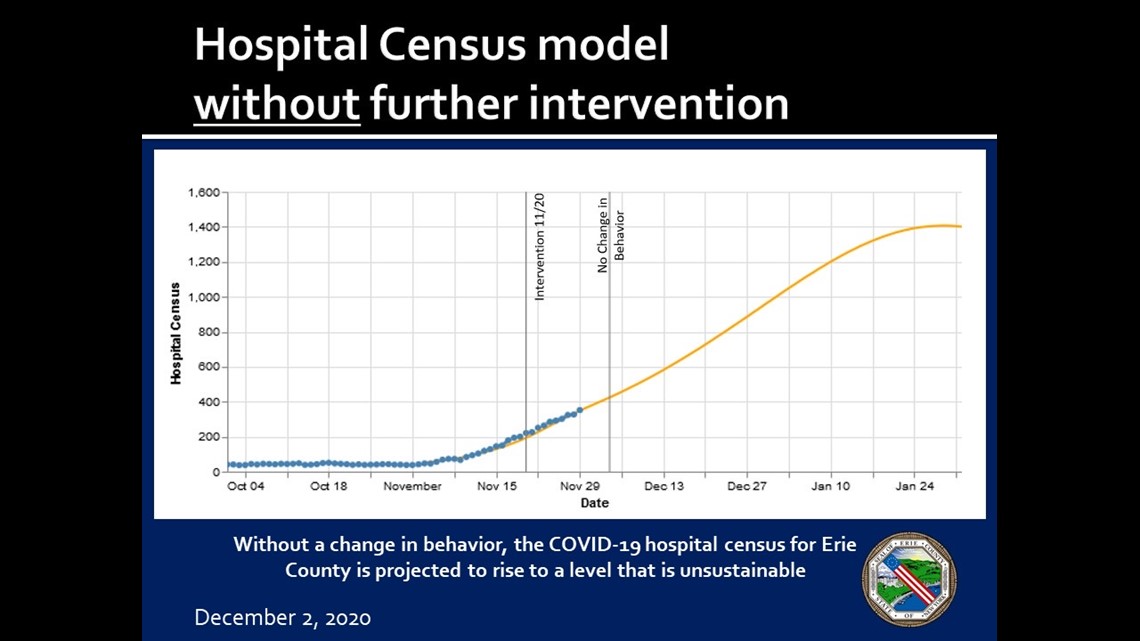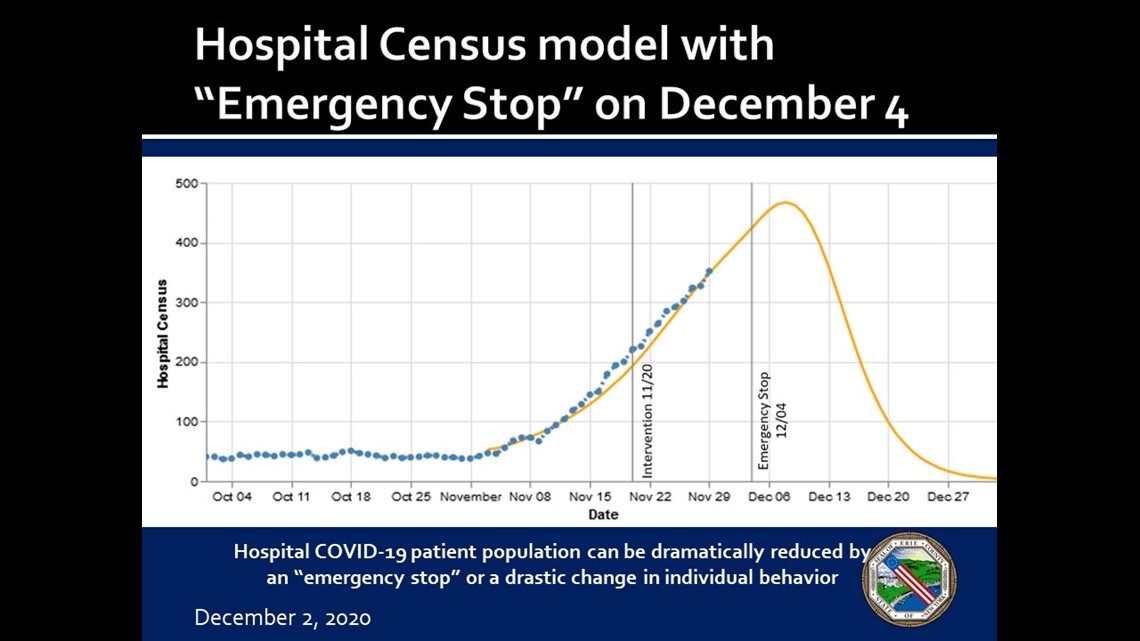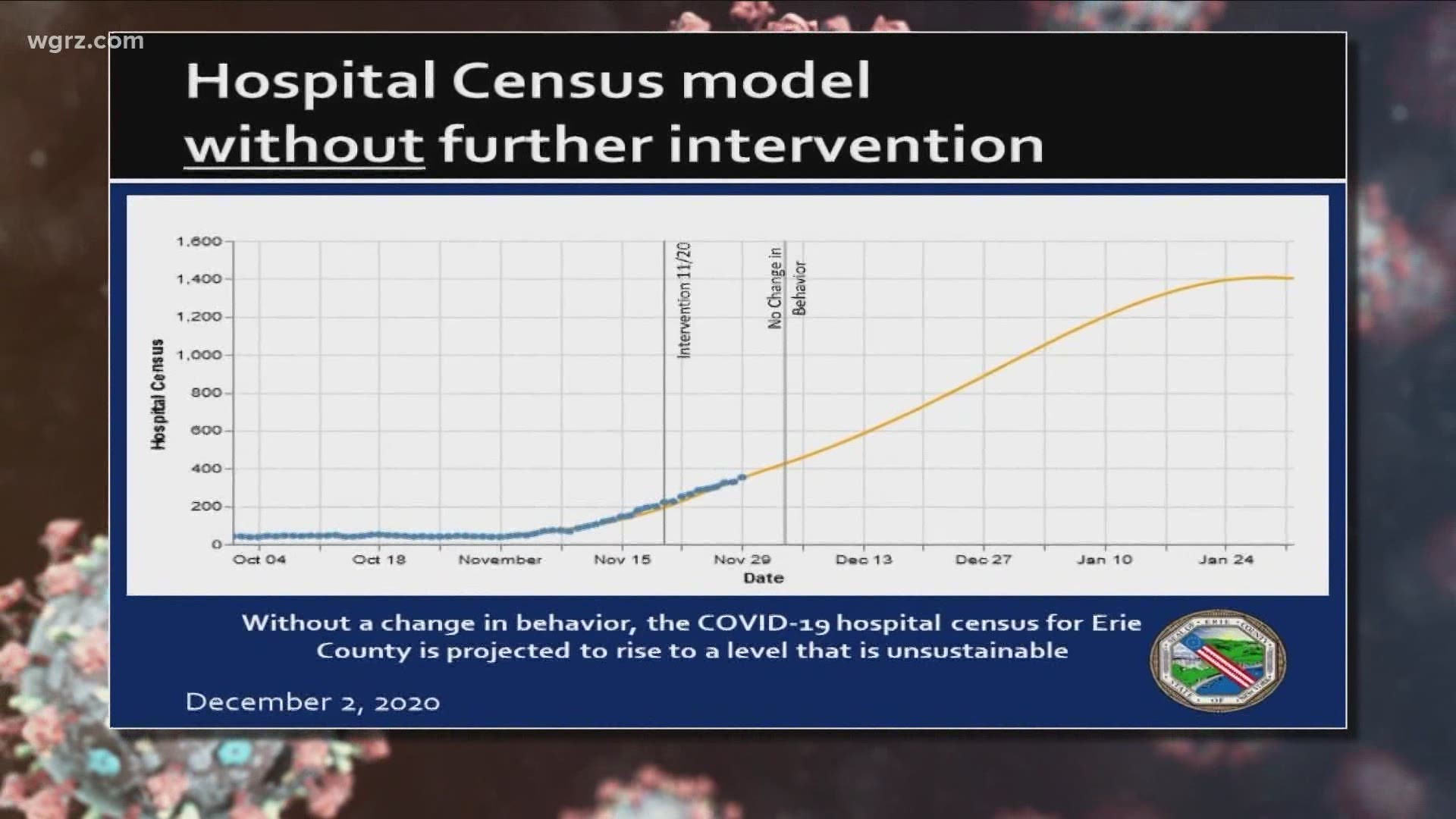ERIE COUNTY, N.Y. — In a COVID-19 briefing on Wednesday, Erie County officials stressed a radical change in behavior is needed to get the situation under control, referencing two projections.
"It would be a disaster for us to continue the way we're going right now," said Peter Winkelstein, an M.D. who is the executive director of the Institute for Healthcare Informatics with UB's Jacobs School of Medicine.
He said his team produced two graphs for the department of health, essentially a best-case scenario and a worst-case scenario.
"The most important data that we look at is hospital census, the number of patients in the hospital," Winkelstein said.


The worst-case scenario projection looks at the hospital census without any further intervention or drastic changes in behavior.
Winkelstein told 2 on Your Side this would be disastrous for our hospital system.
"The virus is continuing to spread, and as it spreads people get sick, and some of them wind up in the hospital. If we don't do anything more, that's just going to get worse. We don't see anything slowing it down," Winkelstein said.


He added, "If you have hospitals that get overwhelmed bad things happen. The mortality rate goes up. Can't take care of people who don't have COVID illness. It becomes a disaster for the community, and we don't want to repeat the experience that New York City had, Italy had, and France had."
The best-case scenario projection looks at the hospital census with an "emergency stop" on December 4.
"That graph shows what would happen if we did what we did in April, put the New York PAUSE in place, put this emergency stop in place, and people paid attention to it," Winkelstein said.
Winkelstein's message to the community is to take this seriously and stay home.
He explained, "I think everyone needs to treat this like they treated it in April as much as possible. Either we're going to do it for ourselves: we're going to stay home, we're going to wear our masks, we're going to avoid contact, we're going to be very careful in what we do. Or it's gonna be imposed on us. There's no two ways around it. We can't have an overwhelmed hospital system."
While this next stretch will be challenging, Winkelstein believes we could be turning the corner soon.
"If we can get through this holiday season and we can get through this winter, there's light at the end of the tunnel. I think this is the last wave," Winkelstein said.

